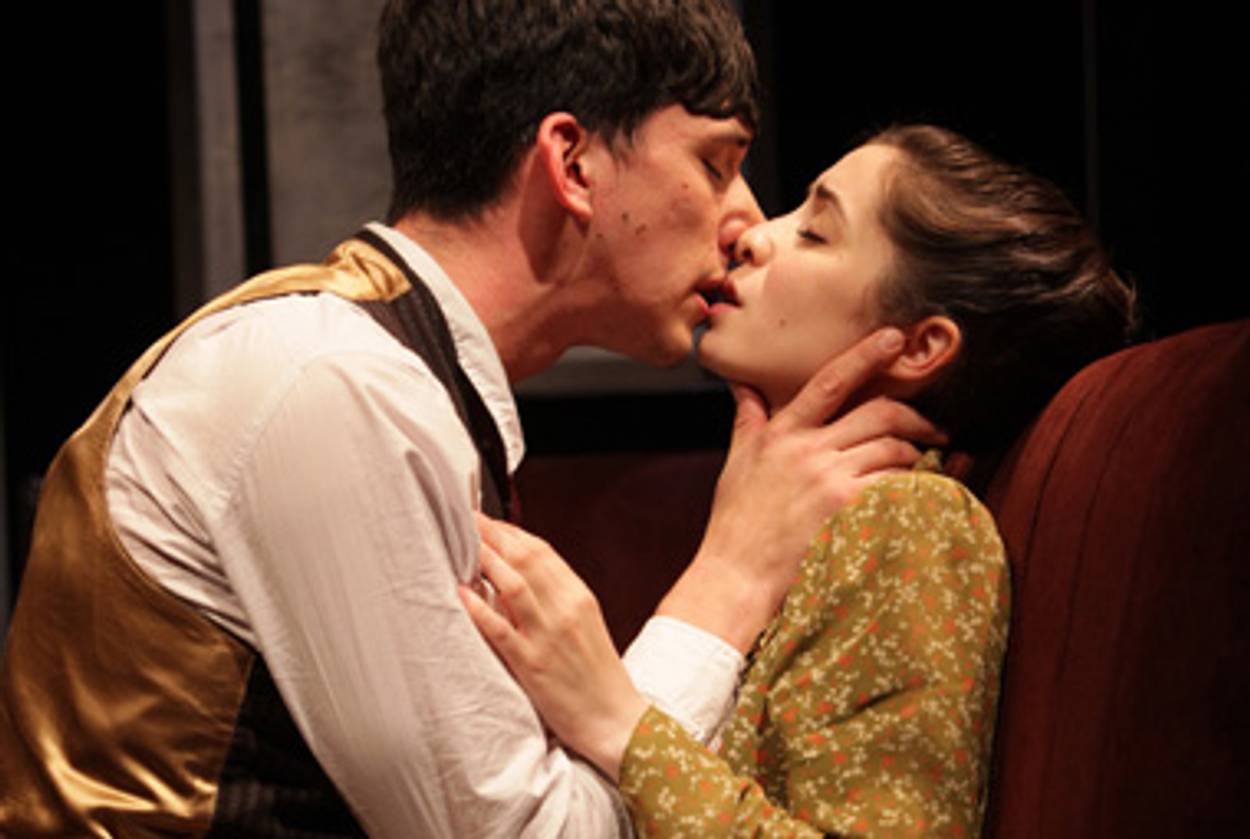Retribution, Reconsidered
A new play considers the psychology of Holocaust survivors fixed on vengeance




The current rage for killing Nazis on screen—as exemplified by the Ed Zwick feature Defiance, and last month’s Inglourious Basterds—has made its way to the stage with The Retributionists, an off-Broadway play that opened in New York Monday. This time, the action unfolds after the war is over, when a band of former partisan fighters reunites to plan revenge on a major scale. “It’s very simple,” says Anika, a leader of this pack. “We’re poisoning the citizens of Germany, and when we have killed as many of them as they did us, we will rest.”
The play’s Nazi-revenge plot has earned The Retributionists, written by the young Canadian playwright Daniel Goldfarb, comparisons to the much-debated Basterds and Defiance’s more conventional partisans-in-the-woods story. In its willingness to engage with the thorny subject of survivors’ erotic lives, it also has elements in common with some of the strangest Holocaust representations of the past months: the little-seen film Death in Love, about a family cursed by an affair its matriarch, once a concentration camp inmate, had with a sadistic Nazi doctor; and an even less-seen play called The Erotic Diary of Anne Frank, a spoof on the Nazisploitation films of the 1970s, which ran in New York for one night.
But most of all, The Retributionists takes a close look at the psychology of partisans who’ve survived the war, and it wonders if they felt—of all things—nostalgic. Lurking beneath the surface for the play’s four central characters, a group of young, attractive ex-fighters and ex-lovers, is a yearning for the intensity of life and love under the Germans. “I almost wish we could go back” to wartime, Dinchka, the baby of the group, tells Anika. (In one of the play’s overlapping love triangles, Dinchka was once involved with both Anika and Anika’s now-fiance, Dov.) “When it was natural and normal and right to love you both. When the thought of vengeance filled my heart with hope instead of terror. I wish we could go back to the ghetto.” It’s a heavy-handed line, but it also humanizes its characters’ experience of the Holocaust: these are neither purely heroic rebels nor cowed victims, but people with the emotional complexity to have found intimacy in the ghetto—and to miss it later.
Thanks to this dark, desperate mood, The Retributionists, for all its antecedents, resembles most closely a stage version of a noir film. Like the noir canon, which took shape during the early 1940s (and includes some of the earliest films to address the Holocaust directly), it’s less about World War II than it is about the zeitgeist of the period that followed—alienated, anomic, and confused—or, as Anika puts it, “a world with no God and no innocence.” Like noir, too, it illustrates this landscape with plenty of erotic drama, shabby hotel interiors, stark lighting, train-carriage rendezvous, mysterious briefcases, and betrayal. Though the play lacks the cool irony and detachment of the best noir, its aesthetic and its subject prove a believable match—a reminder that even when noir films didn’t mention the war explicitly, its shadow falls over the genre.
The major difference, of course, between the world of American noir and the world of the retributionists is the difference between the American and the European Jewish experience of World War II. Many American soldiers, and their filmic representations, returned home shellshocked and disoriented by what had changed in their absence, whereas Goldfarb’s partisans have no home or family to return to; they’ve become refugees, not insurance salesmen or private eyes. When Jascha, another of Anika’s ex-lovers, remembers the good times they had, what he recalls is “sitting in silence with you. Eating pastry. Reminiscing about all our relatives who may or may not be dead.” He and his fellow retributionists draw you in with their smoky postwar sex appeal, then remind you of what, exactly, “postwar” meant if you were a European Jew.
Marissa Brostoff, a doctoral student in English at the CUNY Graduate Center, is a former staff writer at Tablet and the Forward.
Ari M. Brostoff is Culture Editor at Jewish Currents.